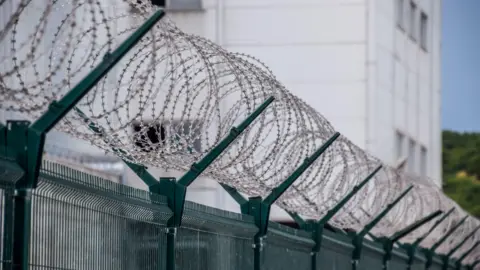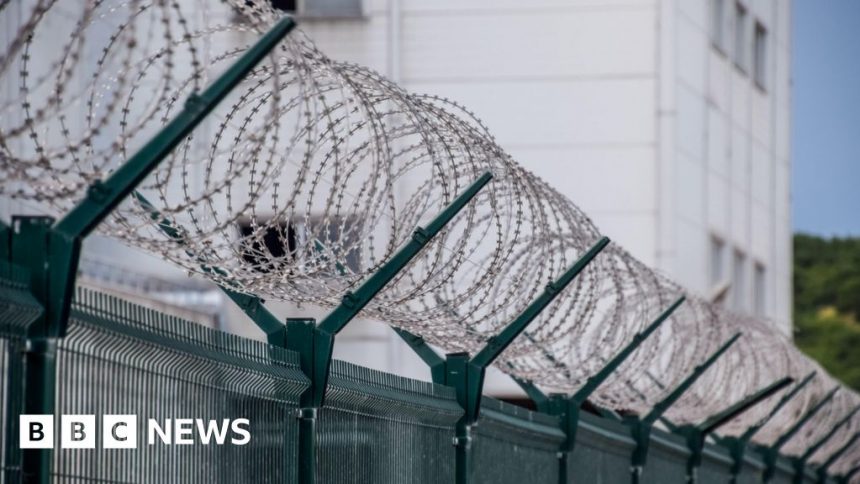Government defends early release scheme after freed prisoner charged with sexual assault
 Getty Images
Getty ImagesThe government has defended the early release of prisoners after it emerged a former inmate is alleged to have sexually assaulted a woman on the same day he was freed.
Amari Ward, 31, was released as part of the policy, which aims to ease prison overcrowding, on its first day on Tuesday.
The man appeared at Croydon Magistrates’ Court on Thursday charged with sexual assault and is due to appear at Maidstone Crown Court next month.
The Ministry of Justice (MoJ) said the early release scheme was necessary because it had “inherited prisons in crisis and on the brink of collapse” and reoffenders would be punished.
Ward is alleged to have “intentionally touched” a woman who did not consent in Sittingbourne, Kent, on Tuesday, according to court documents seen by the BBC.
He was arrested at an address in south London.
Ward was charged with sexual assault, denied bail and recalled to prison on Thursday.
A Ministry of Justice spokesperson said: “The Government inherited prisons in crisis and on the brink of collapse.
“Had that happened, the courts would have been unable to hold trials and the police to make arrests.
“We had no choice but to introduce emergency measures, releasing some prisoners a few weeks or months early, while excluding a number of offences and imposing strict licence conditions.
“While we cannot comment on the details of any single case, those who break their licence conditions or commit further crimes will be punished.”
Around 1,750 prisoners were freed early on Tuesday from jails across England and Wales.
The government’s latest iteration of the scheme came after July’s general election, but officials had already been drawing it up when the Conservatives were in power.
In May, former Prime Minister Rishi Sunak was challenged over the early release of dangerous criminals under the scheme.
During PMQs, Sir Keir Starmer asked for a guarantee that no criminals considered high risk were freed early.
The former PM insisted no-one deemed a threat to public safety would be eligible.
The early release policy sees the proportion of sentences which some inmates must serve behind bars temporarily cut from 50% to 40%.
Criminals serving prison sentences of less than four years for violent offences, including manslaughter, are among those eligible to be freed under the scheme.
Despite government efforts to prevent domestic abusers from leaving prison early, the restrictions will not apply to all criminals with a history of such violence as the policy only excludes particular offences such as stalking.
Attackers convicted of other crimes such as threats to kill or actual bodily harm could still qualify for early release.
Rioters involved in this summer’s unrest are also not specifically excluded from early release. They will only stay behind bars for longer if they are serving more than four years for a violent offence.
Terrorists and sex offenders are excluded and will not be freed early.
This month, prisons reached a record population of more than 88,500.
Officials had previously said that some of those released were likely to reoffend.
Earlier this month, Martin Jones, HM chief inspector of probation, said: “There is also, I think, a certainty that some will reoffend.”
He added that the risk of serious offences was rare but a risk that could not be eliminated.








